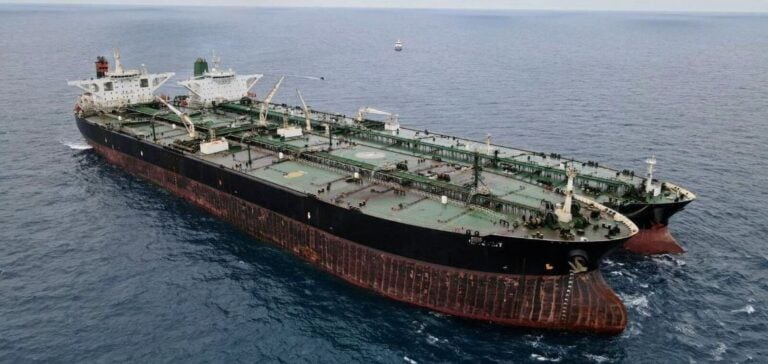The United States has tightened economic sanctions against 35 Iranian ships accused of being part of the “ghost fleet.” This network enables Iran to bypass international restrictions and export its oil clandestinely to global markets. The U.S. Department of the Treasury stated that these measures aim to deprive Tehran of financial resources critical to its nuclear program, as well as its military and terrorist activities.
According to the Treasury, Iranian oil revenues are directly used to develop ballistic missile and drone technologies and to fund regional groups supported by the Iranian regime. Bradley Smith, Acting Under Secretary for Terrorism and Financial Intelligence, declared that the U.S. is “determined to disrupt the illicit activities facilitating this oil trade.”
Broader Economic Restrictions
The sanctions freeze the assets of targeted entities in the United States and ban transactions between these entities and U.S. businesses or citizens. Foreign operators are also subject to restrictions if they use the dollar in transactions with sanctioned entities, exposing themselves to punitive measures by Washington.
This new wave of sanctions follows those implemented last October, which already targeted Iran’s petrochemical industry and about twenty ships. Geopolitical tensions, particularly after an attack on Israel attributed to Iranian-backed forces, have driven the U.S. to strengthen its maximum pressure strategy on Tehran.
Impact on Regional Geopolitics
These measures illustrate Washington’s intent to limit Iran’s ability to finance its regional projects and nuclear program. However, they risk escalating tensions in an already fragile region. The “ghost fleet,” known for its sophisticated tactics such as transponder blackouts and ship-to-ship transfers, may continue to find ways to evade restrictions.
Experts believe that despite U.S. efforts, global demand for oil and the flexibility of Iranian networks make it difficult to completely eradicate these practices. While economically punitive, these sanctions could also deepen Iran’s sense of isolation, further fueling geopolitical rivalries.






















